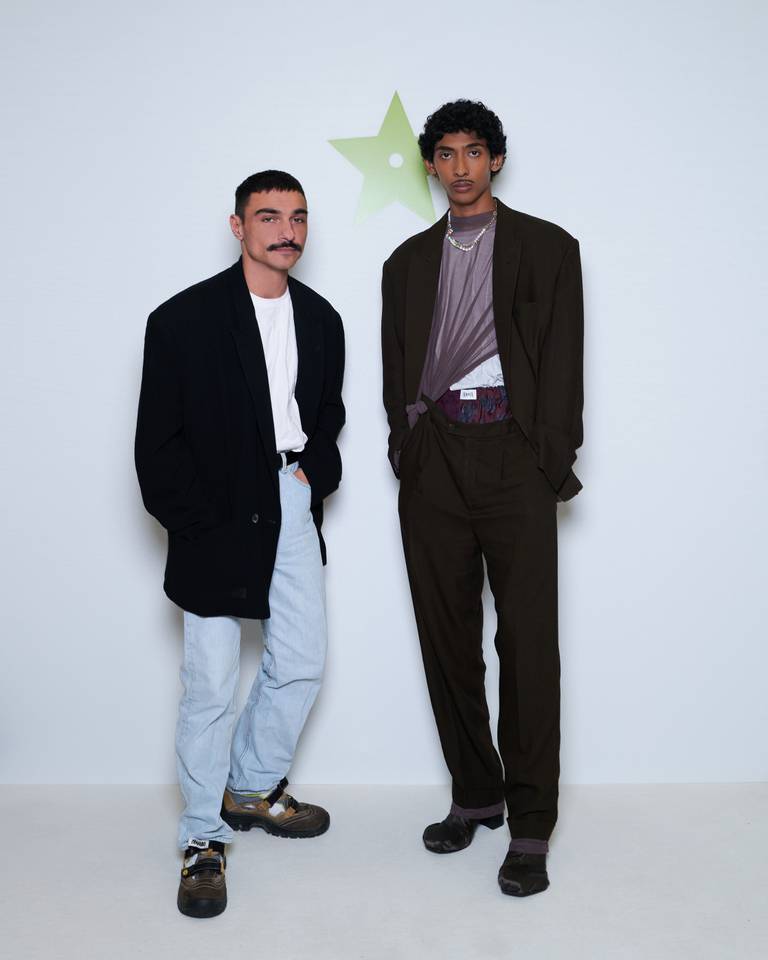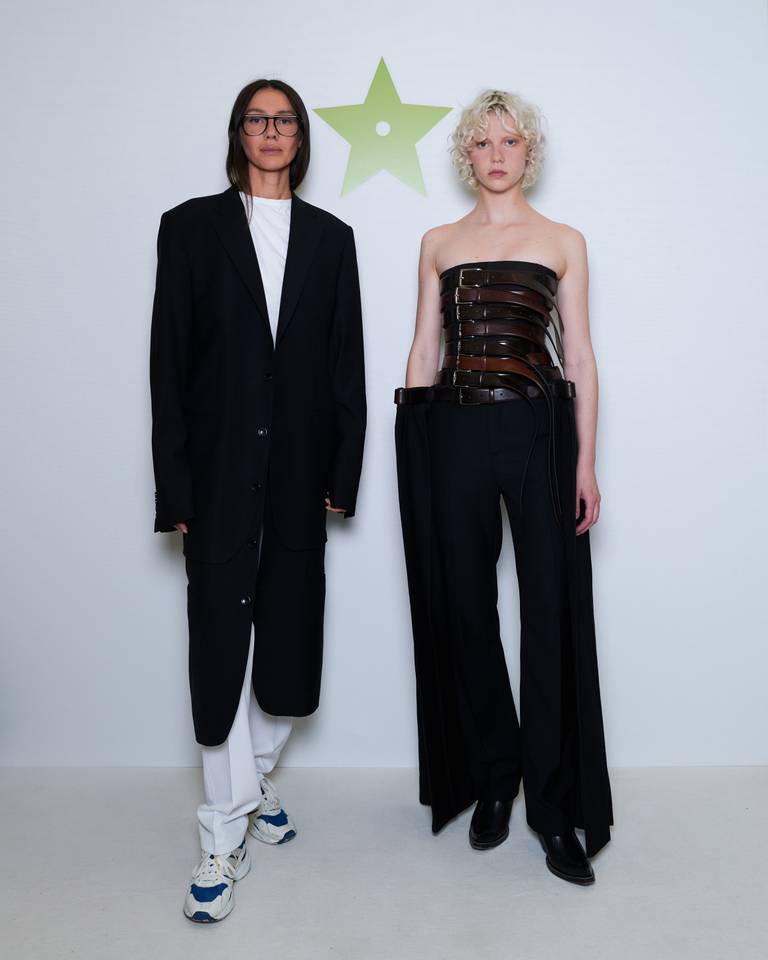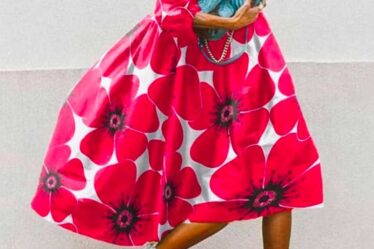
PARIS – LVMH named Satoshi Kuwata’s Setchu as the winner of its 2023 Prize for Young Designers Wednesday.
The 39-year-old Japanese creator, who worked selling bespoke suiting to royals at Huntsman & Sons on Savile Row before enrolling at Central Saint Martins, stood out for his vision that includes “not only clothes, but a philosophy,” said jury member Maria Grazia Chiuri, Dior’s creative director for womenswear. After graduating, Kuwata went on to work at Givenchy under Riccardo Tisci and LVMH’s now-defunct Edun label before starting his own brand.
Now in its fifth season, Milan-based Setchu mixes British tailoring techniques with Japanese traditions like origami. Clients are given instructions on how to roll or fold jackets for storage and travel, using techniques inspired by kimono culture that both minimise the space taken up by garments and preserve pleats and creases integrated in the design. “I just believe in detail,” Kuwata said in an interview while awaiting the jury’s decision in Paris Wednesday.
His inspirations reach beyond modern masters like Issey Miyake and John Galliano, looking back to earlier generations of technical innovators who inspired them, like Mariano Fortuny and Madeleine Vionnet, he said. His designs mix form and function: an impassioned fisherman, Kuwata said one jacket was inspired by the desire to have something he could pack up with his nylon gear “and fish all day, then still look like it’s the end of ‘Death in Venice’ at dinner every night.”
LVMH gave its runner-up award, the Karl Lagerfeld Prize, to two brands: Italy’s Magliano, a contemporary menswear concept known for its relaxed suiting and luxe fabrication of grunge-inflected oversized cardigans, and Bettter by Julie Pelipas, a Ukrainian designer based in London who is working to make upcycling chic and scaleable.
To celebrate the prize’s 10th edition, luxury’s biggest group stepped up the awards for its winners. Setchu will receive a grant of €400,000 ($429,000) in addition to a year of mentoring by the group’s executives. Bettter and Magliano will both receive €200,000. The grand prize and Karl Lagerfeld grants were previously set at €300,000 and €100,000 respectively.
Over the last decade, the LVMH Prize has helped to advance the careers of winners like Marine Serre and Grace Wales Bonner, runner-up Simon Porte Jacquemus, and finalists who have included Virgil Abloh, Demna Gvasalia, and Charaf Tajer (the creator of Casablanca).
This year’s laureates pulled ahead in a tough field of finalists populated by more established creatives than previous editions. Designers seen by market sources as early front-runners in the competition included Luar-founder Raul Lopez — a former collaborator of Shayne Oliver’s Hood By Air, and a well-known figure in the New York fashion scene — and Veronica Leoni — the Rome-based creator behind the brand Quira, who has garnered a reputation for refined taste and built relationships with top-notch suppliers while previously designing for The Row. Other finalists included British designer Aaron Esh, France’s Burc Akyol, Jamaica’s Diotima, and Canada’s Paolina Russo.
But over the course of months of showrooms and meetings with judges, as well as a gruelling final day of presentations in the belly of Louis Vuitton’s whale-shaped art foundation outside Paris — Setchu, Magliano, and Bettter pulled ahead.
The choice of Setchu was “pretty unanimous,” said Delphine Arnault, the CEO of Christian Dior who has overseen the prize since its creation. “The entire jury felt he had the talent, the product, the vision — even for the packaging. Everything felt right,” she said.

Julie Pelipas’ Bettter set itself apart with an innovative, committed approach to sustainability: the designer uses algorithms to match unsold garments with patterns for new designs, forgoing the blank canvas offered by a roll of fabric. The hope is to reduce waste and make the practice of upcycling rigorous, scalable and desirable.
Luca Magliano stood out for proposing a differentiated, authentic, and ultimately wearable take on “Made in Italy” tailoring and knitwear: His is the biggest business among the candidates, with a concrete vision for the brand’s next steps, judges said.
“The prize really reflects the state of what’s happening in fashion,” Arnault said. “Sustainability is something everyone is incorporating in some way. We also saw a lot of tailoring coming back.”
Setchu and Magliano are both set to present their latest collections during this month’s Milan Menswear Week, while Bettter operates on a drop-based model.



